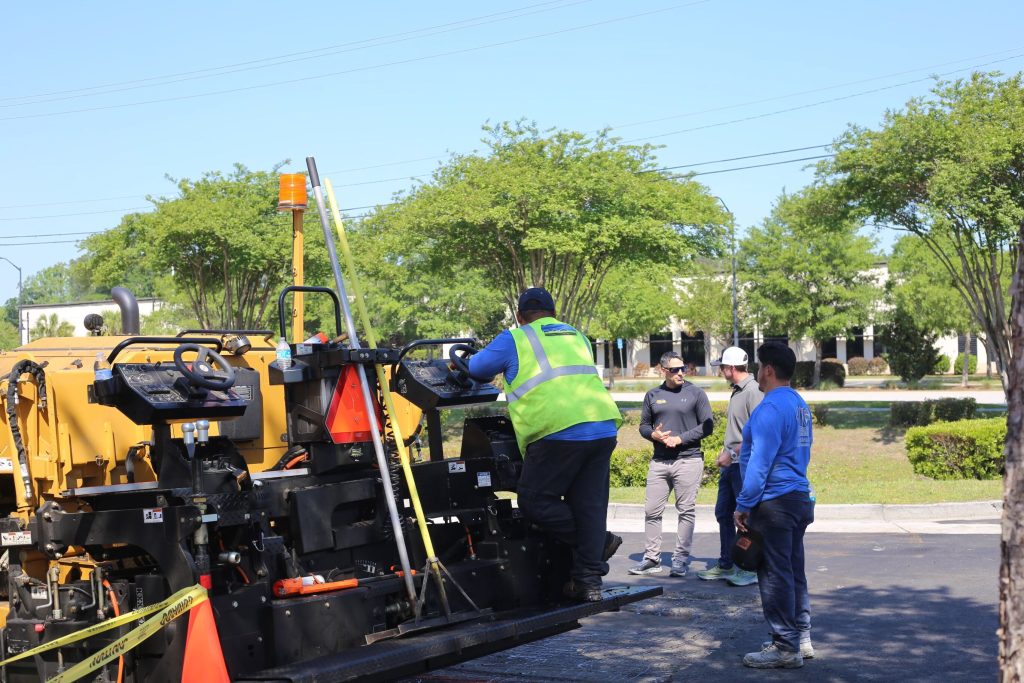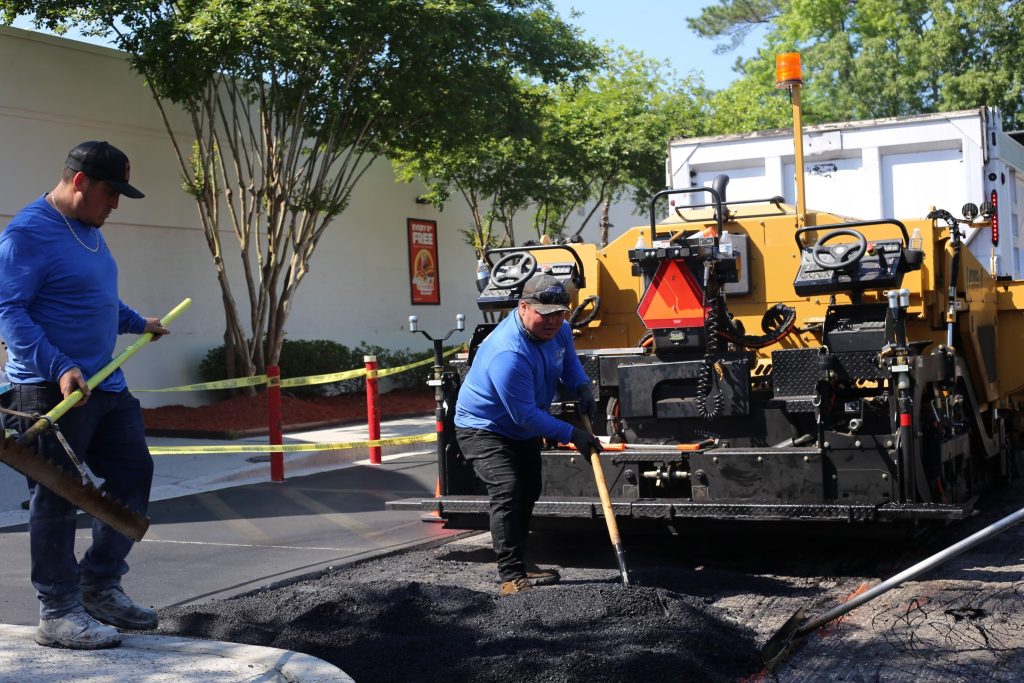As environmental concerns continue to rise, many industries are looking for sustainable solutions to reduce their carbon footprints and minimize negative environmental effects. The asphalt industry is no exception. Green asphalt solutions offer innovative methods for paving that are more eco-friendly and cost-effective. In this post, we’ll explore how green asphalt can reduce environmental impact and the benefits it brings to both businesses and the planet.
What Is Green Asphalt?
Green asphalt refers to environmentally friendly paving solutions that use recycled materials, reduce energy consumption, and improve sustainability. Traditional asphalt production can be harmful to the environment, contributing to carbon emissions and waste. However, green asphalt uses alternative materials such as recycled asphalt pavement (RAP), renewable binders, and warm-mix technology to significantly lower environmental impact. To learn more about the basics of asphalt paving and its environmental footprint, check out our post on What Is Asphalt Paving? A Beginner’s Guide.
How Does Green Asphalt Work?
Green asphalt solutions employ several technologies and materials designed to reduce environmental harm. These include:
- Recycled Asphalt Pavement (RAP): One of the most popular green solutions, RAP involves reusing asphalt from old roads, reducing the need for new raw materials and lowering the carbon footprint.
- Warm-Mix Asphalt (WMA): Traditional asphalt is heated to high temperatures, consuming a lot of energy and releasing pollutants. WMA uses a lower temperature during production, reducing energy consumption and emissions.
- Bio-based Binders: Bio-based asphalt binders, derived from renewable sources, replace petroleum-based binders in traditional asphalt, offering a more sustainable and eco-friendly alternative.
Why Should Businesses Use Green Asphalt Solutions?
Businesses can benefit from green asphalt in several ways:
- Cost Savings: Recycled materials are often less expensive than new raw materials, leading to reduced paving costs.
- Improved Sustainability: Using green asphalt helps businesses contribute to environmental sustainability, a growing concern for both consumers and government regulations.
- Long-Term Durability: Green asphalt solutions often perform just as well, if not better, than traditional asphalt, meaning businesses won’t have to sacrifice quality for eco-friendliness.
Benefits of Green Asphalt Solutions
- Reduced Carbon Footprint: By using recycled materials and lowering energy consumption, green asphalt helps reduce greenhouse gas emissions and conserves natural resources.
- Lower Energy Use: Warm-mix technology and the use of recycled materials significantly reduce the amount of energy required to produce asphalt.
- Waste Reduction: Recycling old asphalt reduces the amount of construction waste sent to landfills, helping divert millions of tons of material from landfills each year.
- Improved Air Quality: Lower production temperatures reduce the amount of particulate matter and pollutants released into the atmosphere during the paving process.
- Enhanced Performance: In many cases, green asphalt solutions offer similar or superior performance compared to traditional paving materials, making them an excellent choice for both residential and commercial projects.
Q&A: Green Asphalt Solutions
Q1: What is the main difference between traditional asphalt and green asphalt?
A1: The main difference is that green asphalt uses recycled materials like RAP (Recycled Asphalt Pavement), renewable binders, and lower production temperatures, which reduce environmental impact.
Q2: How does recycled asphalt pavement (RAP) benefit the environment?
A2: RAP reduces the need for new raw materials, cuts down on energy consumption, and helps divert construction waste from landfills. It also lowers carbon emissions associated with asphalt production.
Q3: Can green asphalt be used for both residential and commercial projects?
A3: Yes, green asphalt solutions are suitable for both residential and commercial applications, including parking lots, driveways, roads, and highways.
Q4: How does warm-mix asphalt (WMA) help reduce environmental impact?
A4: WMA reduces the temperature at which asphalt is mixed, lowering energy consumption, and minimizing harmful emissions and pollutants during production.
Q5: Does green asphalt cost more than traditional asphalt?
A5: While the initial cost may be slightly higher due to the technology and materials involved, green asphalt can save money in the long term due to lower maintenance costs, reduced energy use, and tax incentives for environmentally friendly practices.
Q6: Is green asphalt as durable as traditional asphalt?
A6: Yes, green asphalt solutions, particularly those made with RAP and bio-based binders, offer comparable or even superior durability to traditional asphalt, making it a viable long-term solution.
Q7: How can businesses ensure they are using the most sustainable asphalt solution?
A7: Businesses should work with contractors who specialize in green paving solutions and use high-quality, environmentally friendly materials such as RAP, WMA, and renewable binders.
Q8: Can green asphalt help businesses achieve sustainability certifications?
A8: Yes, using green asphalt can help businesses earn certifications such as LEED (Leadership in Energy and Environmental Design) and meet local or state environmental regulations, promoting their sustainability efforts.
Q9: Is there a government incentive for using green asphalt?
A9: In many regions, businesses can take advantage of tax credits, subsidies, or grants for using eco-friendly paving solutions, including green asphalt, which can further offset costs.
Q10: How do bio-based binders in green asphalt help the environment?
A10: Bio-based binders replace petroleum-based binders in traditional asphalt, reducing reliance on fossil fuels and using renewable resources, which helps lower the carbon footprint of asphalt production.
Green asphalt solutions offer a sustainable alternative for businesses looking to reduce their environmental impact while still benefiting from durable and cost-effective paving materials. Whether you’re repaving a parking lot or constructing a new road, adopting green asphalt technologies can help you contribute to environmental conservation without compromising on quality or performance.
Ready to make your paving project more sustainable? Contact us today for a consultation and get a free quote on green asphalt paving for your commercial property.


